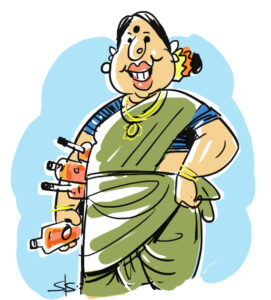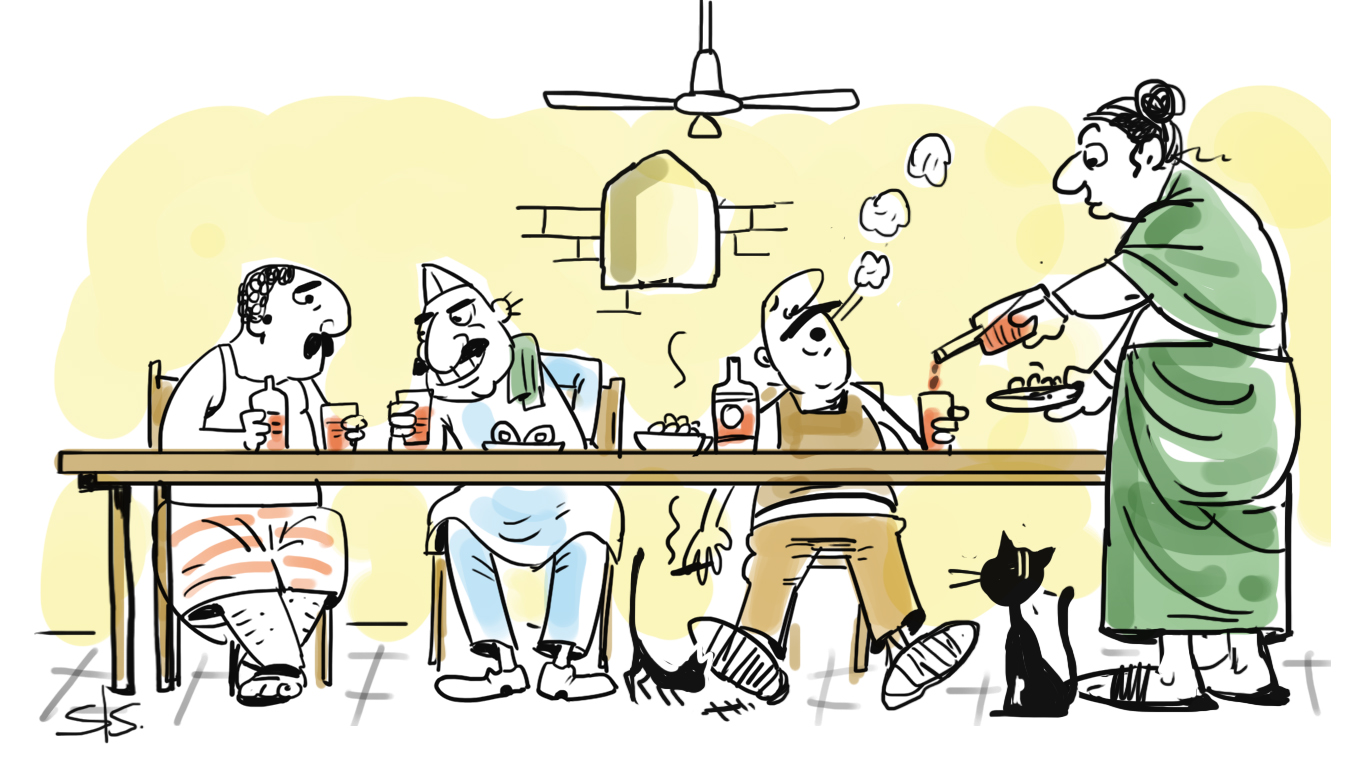Prabhakar Mundkur casts a fond eye back at the shady (yet eclectic) speakeasies of Mumbai’s prohibition days
The ‘speakeasy’ got its name during the days of the American prohibition as illicit bars sprang up all over the United States. Bartenders at these illicit bars requested their patrons to speak a little quietly so as not to attract the attention of the police. That is how it got its name, the speakeasy. The Aunty’s Bar as it was called was our own Bambaiyya version of the American speakeasy.
In Bombay, as Mumbai was then called, which was a liberal city from time immemorial, our own version of the speakeasy appeared on the scene, ever since Morarji Desai took over as Chief Minister of the Bombay State from 1952-56. Even those days, Mr Desai’s drinking preferences were well known. He introduced prohibition almost driving the entire drinking population of this liberal city crazy. The atmosphere in the Aunty’s Bars of yore was interesting, as it attracted people from all walks of life. People who could discuss politics, literature, the arts and other varied subjects. The prohibition introduced in the ’50s continued until the ’70s, although it might be difficult to believe for a city that compares itself to New York as the city that never sleeps.
My introduction to the Aunty’s Bar however happened much later, around 1970. We had got ourselves a gig at the Taj which boasted of India’s first discotheque called the Blow-Up. We used to do two sessions, one between 10 to 10.30 pm and the second from 11 to 11.30 pm. Our usual haunt during the half-hour break was an Aunty’s Bar just behind the Taj and almost diagonally opposite the well-known Bade Miya. The building was dark and rickety, providing just the right atmosphere during those times. During the Indo-Pak war of 1971 the building took on an even more eerie hue, because of the general darkness in the city. We had to cover our vehicle headlights with brown paper and generally Bombay became the dark city to avoid enemy invasion.

The atmosphere in the Aunty’s Bar behind the Taj was both democratic and eclectic. Democratic because you could well be having a conversation with the local taxi driver and eclectic because you could discuss almost any subject under the sun. The Aunty herself was quite a rather forbidding creature. She looked tough and no-nonsense. She could perform the role of a bouncer when required, and was adept at bribing the police who made their way to her bar in search of more fortune. Some of them were so talented that they would also go and retrieve their customers from the police stations.
Fear was part of the adventure and excitement of visiting an Aunty’s Bar. It was common knowledge that all Aunty’s Bars would be raided by the police at one time or another and then you would have to depend on the Aunty to bail you out. I found the accompanying snacks with our drinks quite interesting. Standard fare was boiled eggs and boiled channa, and somehow they made good accompaniment those days although I would abhor the idea of having these with my drinks today.

Another interesting bar that I would visit was in a blind alley that you encountered on the right a few metres away from Astoria Hotel at Churchgate. This was almost an open-air shed without proper seating. So most of the customers were standing and drinking. We would do our jam sessions at the then Talk of the Town, now Pizza by the Bay (whatever that means). One of my most memorable visits to this bar was during the India-Pakistan war. That particular night we were there, there were ack-ack guns firing into the sky and the shells exploding in little pieces of light over the Bombay skies. As it so happened there was no enemy threat, as it turned out, that night. Add this kind of excitement to the other dangers of being there, which included the risk of being arrested by the Bombay police. We made our way home that night on a motorcycle, in pitch darkness. It was difficult to see where you were going because of headlights being banned during that time.
A few years later, prohibition was lifted from Bombay, in 1972. And the government stepped in with country-made-liquor shops which tried to imitate the Aunty’s hooch, complete with flavours like Narangi and Mosambi.
But the romance of the Aunty’s Bars died for ever.









